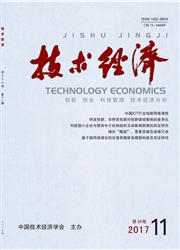

 中文摘要:
中文摘要:
本文基于不完全契约理论研究了股东一利益相关者博弈对并购方股东财富效应的影响。公司是个人之间一系列不完全契约的联结,由于不完全契约的最终执行结果往往需要通过事后再谈判来决定,因此契约各方间的权力分布状况对各契约方的激励和决策有重要影响。在公司相对稳定的日常经营所创造的重复博弈环境中,股东和利益相关者之间会形成较为稳定且均衡的权力分布格局。并购活动打乱了并购前的权力分布格局,而并购后的权力分布状况又尚未成型,此时利益相关者(尤其是原目标公司中的利益相关者)难以预期不完全契约的最终执行结果及自己事后能获得的收入分配,这可能导致他们倾向于采取最大化短期利益的机会主义策略,而不是追求分享未来合作剩余的长期合作性策略。据此,本文认为并购后利益相关者对抗性的策略倾向使并购中潜在的协同效应难以实现,收购公司股东不能获得财富效应。基于上述理论逻辑,本文得到了关于并购股东财富创造的财务模式的可验证假说,并进行了实证检验,回归结果支持了本文的假说。
 英文摘要:
英文摘要:
This paper uses contract economics to investigate the impact of shareholder-stakeholder game on the shareholder wealth effect in merger and acquisition. We recognize the finn as a nexus for a set of imperfect contracts among individuals. Since the parties of imperfect contract often have to renegotiate ex post to decide the finally enforcing outcome, the power allocation among them has a key influence on their incentives and decisions. The comparatively stable day-to-day operation of the finn creates a repeated game setting, and sharehold- ers and stakeholders of the finn will gradually achieve a balanced and stable power allocation in it. M&A disturbs the existing power allocation equilibrium, and the post-merger power allocation equilibrium is hard to predicted, so after M&A, the stakeholders, especially the stakeholders of the target finn, can't anticipate the final outcome of the imperfect contracts and their gains in it with confidence. This situation may cause them more likely to adopt an opportunistic strategy to maximize short-term earnings, than to adopt a cooperative strategy to share future synergic surplus. We argue that is why the potential synergy of M&A is not easy to realize and the shareholder wealth effect is usually disappointed. Based on the logic mentioned above, we develop three hypothesizes and carry out empirical test.
 同期刊论文项目
同期刊论文项目
 同项目期刊论文
同项目期刊论文
 期刊信息
期刊信息
